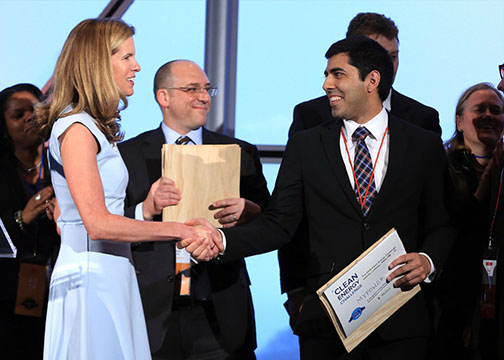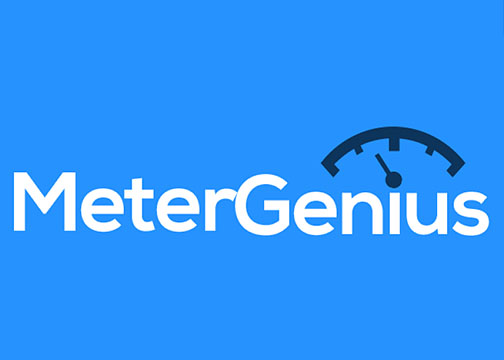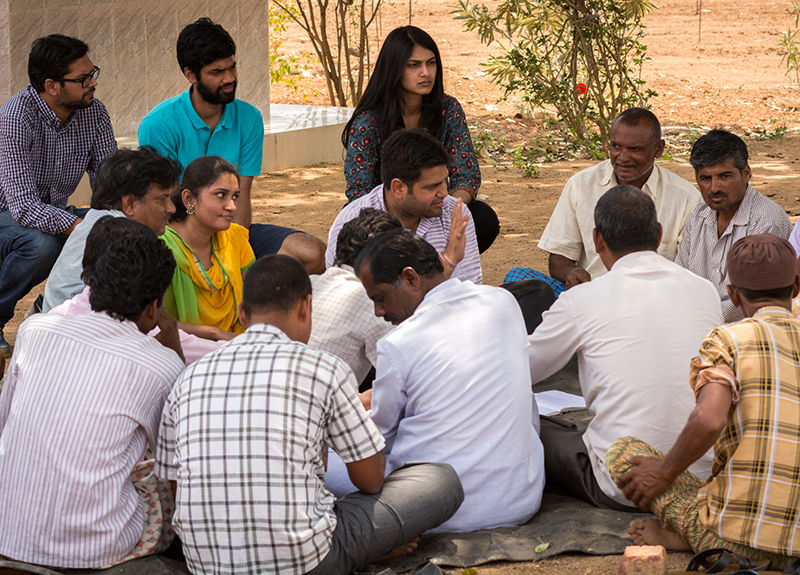Article originally published in Clear Admit.
Kellogg School of Management has long made sustainability and energy conversation integral components of its overall mission. As part of April’s month-long celebration of sustainable initiatives, we unpacked what “going green” means at Kellogg.
For starters, Kellogg’s stunning Global Hub, which opened last spring, is one of the most eco-friendly buildings on campus. It’s a leader in LED lighting technology, which requires 75 percent less energy than incandescent lighting. In addition, the building uses a “unique geothermal energy field” to tap into the earth’s renewable core for sustainable heating and cooling. Earlier this year the Global Hub achieved a LEED (Leadership in Energy and Environmental Design) Platinum certification—the highest possible rating.
“Thinking Green” is a fundamental part of the culture at Kellogg, which encourages students to think critically about how to use their degrees to make a positive environmental impact. One example is the annual Kellogg-Morgan Stanley Sustainable Investing Challenge, which calls on student teams to develop and pitch creative financial approaches to tackle environmental challenges.
“Sustainability and the environment are important to global markets, to corporate leadership and governance, to financial markets, and to human progress,” explained Assistant Professor Megan Kashner, the director of Social Impact at Kellogg.
“Kellogg focuses on sustainability because the tenets of sustainable strategy are central to the future of business and global leadership. Kellogg students bring their values to their work, and sustainability is central to any long-term strategy in leader companies and organizations today.”
Professor David Chen’s “Impact Investing and Sustainable Finance” course looks at how senior investment managers of leading sustainable and impact investment firms deliver strategies that have positive impact. For many Kellogg students, it’s one of the most interesting and exciting sustainability-focused courses offered at the school.
Given Kellogg’s emphasis on sustainability, it should come as no surprise that many alumni have gone on to launch environmentally-focused startups. “Kellogg entrepreneurs whose startups center around a green mission get support from across the Kellogg and Northwestern community,” said Kashner.
“There’s Kellogg’s Innovation and Entrepreneurship Initiative, Social Impact at Kellogg, the Northwestern Garage, and Northwestern’s Institute for Sustainability & Energy. Classes, mentorship, funding support, incubation, and pro bono tools are available to our green entrepreneurs as they envision, test, and scale their concepts.”
To get a better idea of what it’s really like to be a “green” entrepreneur, we interviewed three Kellogg MBA alumni about their experiences founding “green” startups.
- Ty Benefiel (MBA ’14): Benefiel is the founder of MeterGenius, which provides consumers with energy management tools and smart appliance connectivity and offers a rewards program for customers depending on electricity use.
- Nicole Chavas (MBA ’15) and Laura Brenner Kimes (MBA ’15): Chavas (CEO) and Kimes (VP of talent and impact) are co-founders of Fresh Coast Capital, which provides sustainable land management to municipalities, land banks, developers, and other landowners.
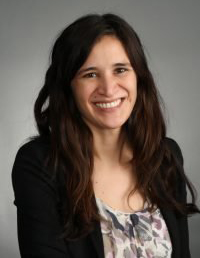

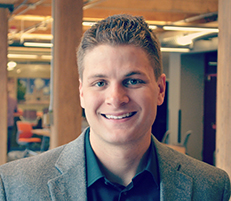
Left to right: Nicole Chavas (MBA ’15) CEO of Fresh Coast Capital; Laura Brenner Kimes (MBA ’15), VP of talent & impact, Fresh Coast Capital); Ty Benefiel (MBA ’14) Founder, MeterGenius
Clear Admit: Why is sustainability important to you and how did that impact your entrepreneurial path?
Nicole Chavas: Sustainability brings together all the elements that make a community vibrant: economic prosperity, social cohesion, and ecological health. I want to give cities like Youngstown, OH—a former steel town that has lost 60 percent of its population—the tools to revitalize and find sustainable solutions to some of its most pressing challenges.
Laura Brenner: My career has centered around sustainability because it’s been my mission in life for as long as I can remember. (I used to carry around a “50 simple things kids can do to save the earth” book.) When I applied to Kellogg, I thought I would work for sustainability-themed nonprofits in a management role following graduation. But that changed along the way with my exposure to the spectrum of ways organizations can structure for impact… giving me the confidence to take a for-profit entrepreneurial path following graduation.
CA: Did you attend Kellogg with the plan to develop a startup focused on sustainability and the environment or did Kellogg foster those interests after you arrived?
NC: I came to Kellogg with a general interest in connecting finance and investing with broader social and environmental impact; a desire to start my own company; and a personal passion around urban revitalization of legacy cities in the “Rust Belt” region. As I used my experience at Kellogg to explore opportunities for impact investing to drive urban revitalization, I realized that investing in green infrastructure is one of the best ways to drive economic and social impact in under-served communities. That’s what sparked the founding of Fresh Coast Capital.
Ty Benefiel: I attended Kellogg knowing I wanted to start a company with a sustainability focus, but I did not know what problem I wanted to solve. I focused my course load and my student leadership positions to maximize Kellogg’s sustainability offerings. I loved Klaus Weber’s classes on sustainable strategies in business, and it was in these classes that I discovered some of the sustainability issues plaguing the electricity industry. While taking a class specifically about the energy industry, I found the problem I wanted to solve that would create economic value and have a positive impact on the environment.
CA: What clubs, professors, classes, or centers at Kellogg have most helped/inspired you?
LB: Reflecting back, six Kellogg experiences stand out: Dave Chen’s “Impact Investing” course shaped our initial idea, “Entrepreneurial Law” (though daunting at first!) gave practical knowledge that helps us manage our business, Net Impact and the “Business of Energy” student-led course helped identify like-minded students, the Morgan Stanley Sustainable Investing Challenge launched our company, and the Board Fellows program helped me see how a governing board functions.
TB: While at Kellogg, I was president of the Sustainable Business Club and co-led Green Week. These were extremely valuable experiences, as I was able to work alongside other Kellogg students who had a passion for sustainability to bring in great speakers and host exciting events for the rest of the Kellogg students.
CA: What advice do you have for a current MBA candidate interested in an entrepreneurship career focused on the environment?
NC: A combination of technical skills, management skills, and a strong personal mission are critical to weathering the challenges of an impact-driven startup. If you’re looking for business partners/co-founders, try to find people driven by the same personal mission but who bring very different skill sets and perspectives; diverse perspectives and experiences are critical to success in sustainability! Be thoughtful about the classes you select and how they can either give you skills you may be lacking or help you continue to refine and test out your entrepreneurial ideas.
LB: If your dream job doesn’t exist, make it yourself! This translates to starting your own company, or even writing your own ideal job description and shopping it around to mentors within your current organization. Also, know that it’s totally normal for an entrepreneurial leap to feel scary. If it doesn’t, you’re not doing it right. That said, there are plenty of ways to manage the financial risk; lots of people have made the leap before.
TB: If you are interested in the environment, maximize the number of classes, programs, and clubs you can participate in at Kellogg that revolve around sustainability. There are so many ways you can contribute to a more sustainable society. So even when you’re not taking sustainability classes, keep an open mind as to how you could make the process or business you’re studying more sustainable. Finally, if you have an idea for a sustainable business, it must make financial sense. Unfortunately, the true cost of pollution doesn’t impact a company’s bottom line, which is why companies won’t care if you bring them a solution to their pollution problem if it won’t save them money. To truly be impactful, your sustainable idea must be profitable.




